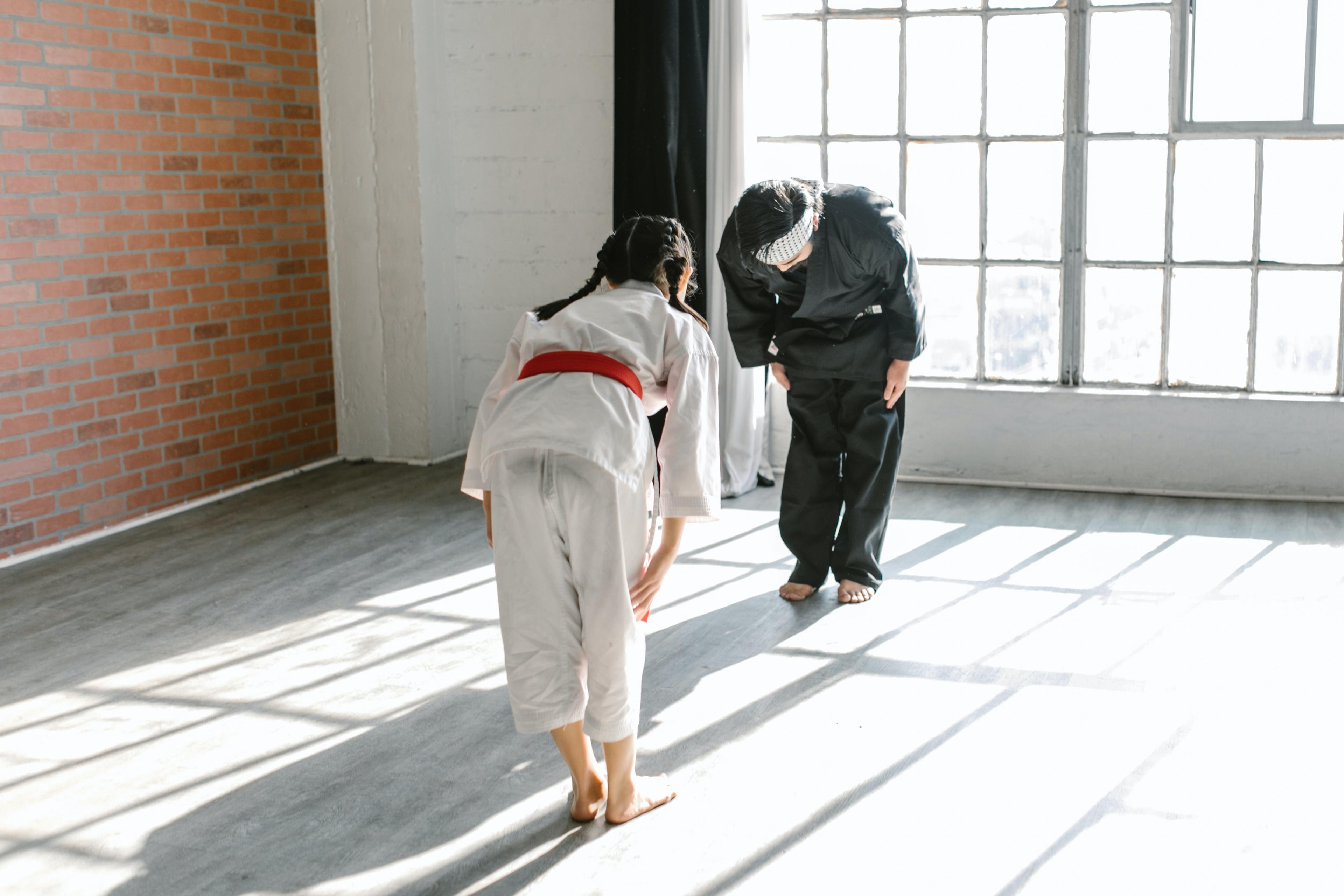- Home
- »Articles
- »Martial Arts
- »Karate
- »What Qualities do Children Learn from Karate?



What Qualities do Children Learn from Karate?
12 January 2023
All martial arts teach basic self-defence skills. There are a lot of other qualities children can learn from practising these sports, too.
Respect
The sport of karate is steeped in a tradition and etiquette that teaches respect in many ways. Children aren’t only taught how to show respect but are also shown how it feels to earn respect from others. Self-respect is also an integral part of karate. Children learn how to recognise and understand their own bodies and minds, and learn how to keep themselves well, both physically and mentally. By gaining skills and confidence in karate, a child's sense of self-esteem often increases, too.
Self-control
Karate training must be taken seriously. Because the skills and techniques it teaches can cause injury, children are taught the importance of mental and physical control before they even learn how to throw a punch. Karateka (the term for somebody who practices karate) must be able to control their own bodies and impulses and, as tempers can sometimes run high in a sport that includes physical contact, must also know how to control their emotional responses. Practising karate helps children learn how to keep a clear, calm head, and maintain perspective.
Listening and reflection
While karateka are instructed by a sensei (the name given to the chief instructor), a lot of the onus to learn is on the individual. A sensei will guide and instruct, but it’s ultimately up to the individual to master and develop their own skills. Karateka can only progress through the belts by showing that they have listened to their sensei’s instruction and applied it to their own practice. This experience helps to develop in children many qualities important to learning. There are no outside distractions in a dojo; for the length of a session, a child’s focus is on themselves and their study. Many parents report seeing an improvement in how effectively children can focus and direct their own time after they’ve trained in karate.
Perseverance
All sports take time to master. Karate is no exception. The history of karate is filled with stories of students practising the same punch endlessly for eight hours or repeating drills until their arms and feet are sore. Though most clubs rarely take things to this level nowadays, this underlying principle is still evident. Mastering karate takes time, and there is no fast track to success. For anyone practising karate, there will be literal knockbacks on the road to success. The quality and attitude that this experience develops is valuable.
Getting Active
Karate is energetic and fun. It’s a great way to be active, and children respond well to the style of exercise that it provides. By attending a good dojo, a child will soon build their own repertoire of exercises and warm-ups. Many exercises in karate train the body without using equipment, so it’s easy for children to continue being active in their time away from the dojo, too.
